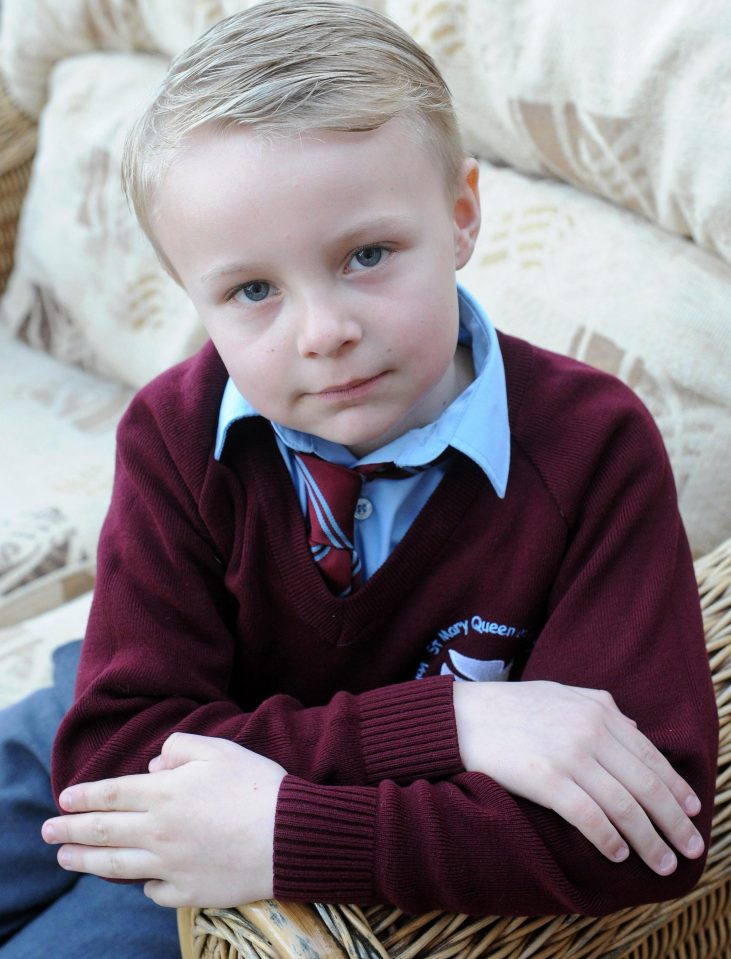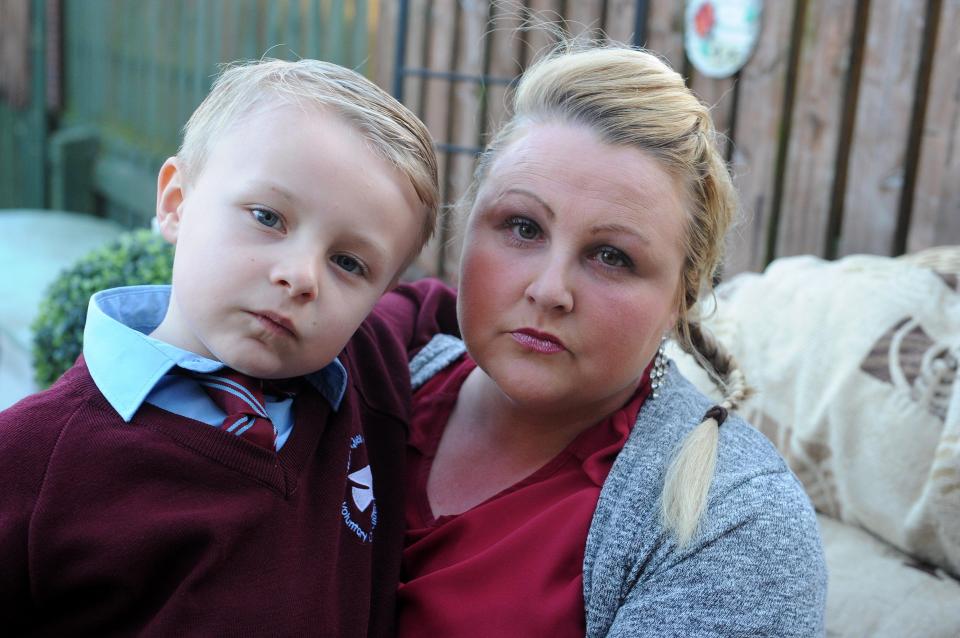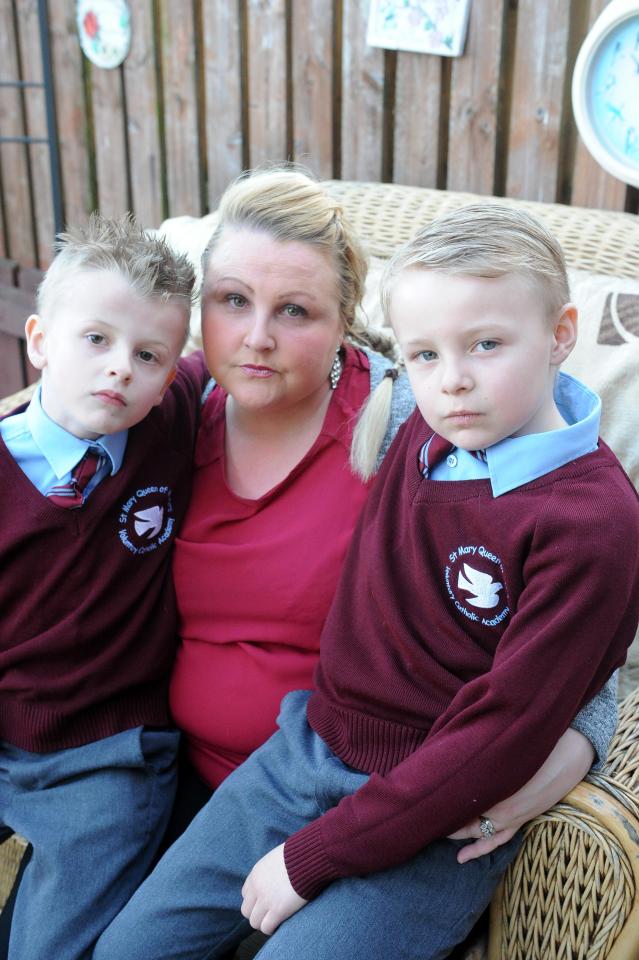Schoolboy, 8, diagnosed with DEPRESSION after telling heartbroken mum ‘I think about sad things all the time’
Six months ago little Chesney became withdrawn and struggled to sleep

A MUM has told how her eight-year-old son is battling depression after he confessed to "thinking about sad things all the time".
Stacey Mills was left devastated when a GP diagnosed her eldest son Chesney after he became more withdrawn and started to struggle to sleep six months ago.
He started crying a lot of the time, often got angry and would uncharacteristically lash out.
Stacey, 32, said: "He started to become more and more moody and over time he didn't want to get up to go to school. He just wanted to be at home with his mummy and daddy.
MOST READ IN NEWS
"Even when he was at school he was not joining in with activities or expressing himself.
"I thought I was a bad parent. I thought it was something I had done wrong but it was just the way Chesney was feeling.
"He said he feels alone and doesn't know why. He said he thinks about sad things all the time.
He thinks about losing his pets and that something is going to happen to his mummy or daddy. It's heartbreaking.
Stacey Mills
"He thinks about losing his pets and that something is going to happen to his mummy or daddy. It's heartbreaking.
"He said he doesn't know why he is thinking sad things and that he is scared of being alone. One minute he'll be fine and the next he'll be in tears."
Eventually the mum-of-two, who suffers from bipolar herself, took Chesney to her GP who said he was suffering from a form of depression.
He was eventually referred to Child and Adolescent Mental Health Services (CAMHS) through his school.
Stacey added: "The school got all the support they could off CAMHS. He's had one-to-one support sessions and they give him certificates for attendance which does encourage him to come in.
"He attends a group called wishes and feelings which helps my child to express his emotions when they don't know how to.
"He can speak to the teacher openly and he feels confident enough to confide in them.
"They give 100 per cent and as a family we couldn't have asked for them to do anymore for him."
People don't think children can get depressed but they can.
Stacey Mills
The family are still waiting for Chesney to be given an official mental health diagnosis, and although some days are struggles, Mrs Mills is confident her son will start to get better as she encouraged other parents to not be afraid to look for help.
She added: "I want people to know that they can speak to the school in confidence and they are not going to be judged. People don't think children can get depressed but they can."
Can children become depressed and what are the signs to look out for?
LOTS of people think depression only affects adults.
But children and teenagers can become depressed as well.
According to figures from the Office of National Statistics, 10 per cent of children in Great Britain aged between 5 and 16 have a mental health problem, with 4 per cent of children suffering from an emotional disorder such as anxiety or depression.
There are ways to tell the difference between normal ups and downs and the beginnings of a more serious emotional health problem.
Dr Navina Evans is consultant psychiatrist at London's Capio Nightingale Hospital and the East London and City Mental Health Trust, told NHS Choices: "The obvious signs to look out for include a low mood and unhappiness, with tearfulness or irritability that may not be related to anything specific.
"Also watch out for reactions when something sad happens.
"For instance, when someone dies it's normal for everyone in the family to feel distressed.
"But if you feel your child's reaction is too extreme or has gone on for too long, that could also be a sign of depression."
She says the first thing you should do is talk to them to find out what is troubling them, but never trivialise it.
If you are worried your child is depression, take them to see a GP and they can refer you onto counselling, behavioural therapy or prescribe medication if necessary.
Source: NHS Choices
We pay for your stories! Do you have a story for The Sun Online news team? Email us at tips@the-sun.co.uk or call 0207 782 4368














